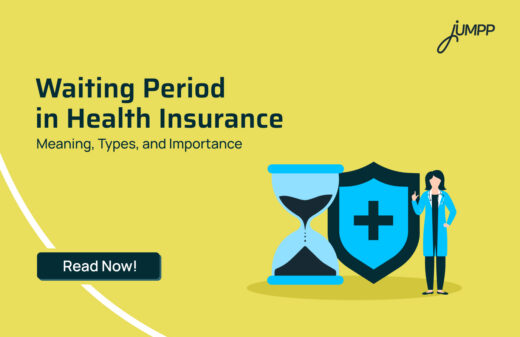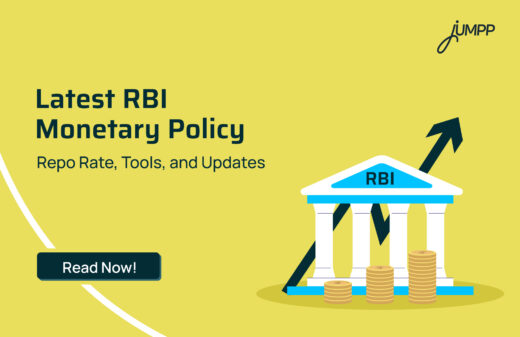What is a Rider in Insurance and Why Most People Only Understand It Too Late

When you buy an insurance policy, you’re securing financial protection for the future. But no two lives are the same. Your goals, risks, and priorities may differ significantly from someone else’s, even if you both choose the same base plan. Here comes the role of insurance riders in India. So, what is a rider in insurance, and how can one policy meet such varied needs?
Riders are optional add-ons that let you customise your policy to better match your unique situation. But surprisingly, most people only realise their importance when it’s too late.
Let’s explore the types of riders in Insurance!
Rider Meaning in Insurance
A rider is an optional benefit that you can attach to your base insurance policy. It modifies the original terms or adds extra coverage to your policy. It is also called an endorsement.
So basically, what is a rider?
A rider gives you the flexibility to enhance coverage without buying a new policy. You usually pay a small additional premium to include a rider in your plan. In exchange, the rider provides you with additional protection against specific risks that are not covered under the basic policy.
Riders are available across different types of insurance products, including life insurance, health insurance, and even general insurance such as home or travel policies.
The purpose of a rider is to offer more flexibility and control to the policyholder. Instead of buying a separate policy for every possible risk, you can extend the functionality of your existing plan using riders.
For example, suppose you buy a term life insurance policy of ₹1 crore. By default, it only pays out if the policyholder passes away during the policy tenure. But if you want that same policy to provide financial support in case of a major illness or disability, then you can add a critical illness rider or a disability rider at the time of purchase.
Know the real meaning of a critical illness rider!
Why Riders in Insurance Are Important
Standard insurance policies are limited in scope. They are built to cover generic needs. But your life, health, job, and family situation are unpredictable and generic.
Riders are important because they allow you to take a generic policy and make it more personal. They allow you to:
- Add protection for specific risks such as accidents, critical illness, or disability
- Reduce the need to manage multiple insurance policies
- These ensure continuity of benefits even during a financial setback (such as job loss or illness)
- Save time and cost because riders are usually cheaper than buying a separate policy
With a rider in insurance, instead of maintaining separate claims and renewal schedules, you can keep your cover under one policy document with expanded protection.
Types of Riders in Insurance You Should Know Before Buying a Policy
These riders are mostly available on life and health insurance policies, though a few also apply to home, travel, and other general insurance products.
1. Critical Illness Rider
This rider provides a lump sum payout if the insured is diagnosed with a specified major illness. These typically include cancer, stroke, heart attack, kidney failure, and a few other life-threatening conditions.
- The amount is paid as soon as the diagnosis is confirmed, subject to policy conditions.
- It is paid regardless of actual hospital expenses.
- This money can be used for treatment, recovery, loss of income, or any other personal purpose.
- However, in many policies, this amount is deducted from the base policy sum assured if a claim is made under this rider.
This rider is particularly helpful for families where the policyholder is the sole earner, and a serious illness would create both medical and income-related stress.
2. Accidental Death Benefit Rider
This rider offers an additional sum to the nominee if the policyholder dies due to an accident. It is important to note that most basic life insurance policies already cover death, including accidental death. But with this rider, the nominee gets an extra payout over and above the base cover.
For example, if your policy sum assured is ₹1 crore, and you add an accidental death benefit rider of ₹50 lakhs, then in case of accidental death, the nominee will receive ₹1.5 crore.
This rider is very useful for people.
3. Waiver of Premium Rider
This rider waives off all future premiums if the policyholder becomes permanently disabled, critically ill, or unable to earn income due to an accident or illness. The policy remains active and continues to offer full protection without requiring any further payment.
This rider is especially important for people with dependents or limited emergency savings. It ensures that the insurance plan does not lapse even when income stops temporarily or permanently.
4. Income Benefit Rider
This rider ensures that, instead of a one-time lump sum, your nominee receives a regular monthly income for a fixed number of years after your death. This helps in creating a stable financial flow for your family.
This is useful when you want your nominee to have access to consistent income, especially in households where financial planning and investing experience may be limited.
5. Permanent or Partial Disability Rider
This rider pays a defined benefit if the insured suffers from a partial or complete disability that prevents them from earning. In case of permanent disability, the rider may also provide recurring income support for a few years.
6. Term Conversion Rider
Started with a term plan but now want something more permanent? This rider lets you convert your term life insurance into a permanent policy later, without taking a medical test again. It’s helpful if your health changes or if you want lifetime coverage.
7. Guaranteed Insurability Rider
Want to increase your cover in future without fresh medical checks? This rider gives you the guaranteed option to buy more insurance later, like after marriage or having a child, even if your health changes.
8. Long-Term Care Rider
If you need help later in life, like home nursing or care in a facility, this rider covers those long-term care expenses. It helps reduce financial stress if health issues arise in your older years.
9. Child Rider
Want a little coverage for your child under your existing policy? This rider lets you add life insurance for your children without taking a separate plan.
The terms vary from insurer to insurer, so it is important to understand what level of disability qualifies, how the payouts are calculated, and whether the rider includes a premium waiver.
Riders in Insurance Examples
Let’s take a real-life scenario to see how riders in insurance examples can add value.
Ramesh is a 36-year-old salaried employee living in Delhi. He buys a term insurance policy of ₹1 crore with the following riders:
- Critical Illness Rider of ₹25 lakhs
- Accidental Death Rider of ₹50 lakhs
- Waiver of Premium Rider
Scenario 1: Ramesh is diagnosed with early-stage cancer
He receives ₹25 lakhs immediately from the critical illness rider. His policy continues.
Scenario 2: A year later, Ramesh dies in a car accident
His nominee receives ₹1 crore from the base policy and ₹50 lakhs from the accidental death rider. Total payout = ₹1.5 crore.
Scenario 3: If Ramesh had become disabled and was unable to pay premiums
His policy would have continued without any payment, thanks to the waiver of the premium rider.
This is how riders work together to create a well-rounded safety net for you and your family.
This was just a basic example to show how riders can work together.
In reality, every insurer has different conditions, exclusions, and claim terms.
So, before you buy, read the details or ask your insurer how each rider works with your base cover.
Tax Benefits on Riders
Most riders qualify for the same tax deductions as the base policy. If you are adding a life insurance rider, you may get tax deductions under Section 80C. If it is a health-related rider, such as hospital cash or critical illness, you may qualify under Section 80D.
However, this depends on the nature of the rider and the overall structure of your policy!
Things to Consider Before Adding a Rider
Riders are powerful, but they come with conditions. Before adding one, you should evaluate the following:
- Riders must often be added at the time of buying the policy. Some insurers allow them later, but this is not guaranteed.
- Some riders may require medical underwriting or health checks.
- The rider premium increases your total policy premium. It may be small, but it is still an additional cost.
- Read the terms carefully. For example, the critical illness rider might reduce your base cover if a claim is made.
- Avoid duplication. Do not buy a critical illness rider if you already have a dedicated critical illness plan. The overlap will increase costs without adding a significant benefit.
If you are planning to buy a policy soon, take the time to understand your risks. Then evaluate which riders are worth the extra cost. The right combination will not just save money, but also create clarity and confidence in your long-term plan.
Looking beyond riders? Grow your wealth with India’s smartest investment app.
Riders in Insurance- FAQs
A rider is an optional add-on benefit that you can attach to your base insurance policy to extend its coverage or provide additional financial protection.
In most cases, riders must be added when you buy the policy. Some insurers allow mid-term additions, but only after additional checks and paperwork.
Yes. Each rider in insurance has a separate premium. The total premium is calculated based on the sum assured and risk covered by the rider.
Yes, but this depends on your insurer’s rules. Most companies require a formal request and documentation to remove or change riders.
No. Riders are available in health, home, travel, and other general insurance policies as well. However, their structure and availability may differ across product types
Coverage refers to the core protection provided by the main policy. Riders are extra benefits that enhance this coverage for specific scenarios.
There is no fixed number, but common types include critical illness, accidental death, waiver of premium, disability, and hospital cash riders. Availability may vary by insurer and policy type.
It means the rider benefit is valid for 20 years from the start date. After that, the rider either expires or may need renewal, depending on the policy.






